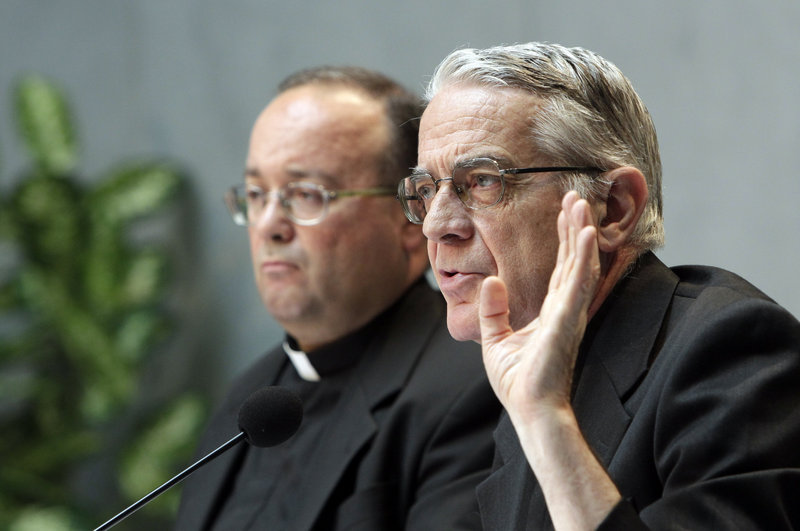ROME – The Vatican issued new in-house rules Thursday that it said would make punishing sexually abusive priests easier but that critics declared short on real change.
The revised regulations allow the Holy See to fast-track the defrocking of a cleric guilty of child molestation and extend the statute of limitations within church law in such cases. They also define sexual abuse of mentally disabled people and possession of child pornography as canonical crimes for which a priest can be stripped of his clerical status.
But in many ways, the revisions contained in the first major document issued by the Vatican since a sex-abuse scandal in Europe erupted earlier this year merely make official what is already working procedure within the church. They also do not explicitly require that sexual misconduct be reported to police or that bishops who hush up such crimes be disciplined, as critics have demanded.
“Tweaking existing church policies won’t have real impact on bishops’ behavior and won’t make the changes that kids need to be safe,” said David Clohessy, director of the Survivors Network of those Abused by Priests.
And controversially, the new document classifies the attempted ordination of a woman as a canonical crime equal in gravity to molesting minors and heresy. That has outraged advocates of greater rights for women within the Roman Catholic Church, many of them in the U.S.
Msgr. Charles Scicluna, the Vatican’s internal prosecutor, defended the revised rules as an important step because they codify the Vatican’s policy on dealing with priestly sex offenders, leaving no room for doubt on the penalties that can be imposed. Many elements of the policy have already become common practice but did not, until Thursday, have the force of canonical, or church, law behind them.
“That is a step forward, because the norm of law is binding and is certain,” Scicluna told reporters.
Victims of child molestation can now bring a case against their abusers up to 20 years after their 18th birthday, double the previous statute of limitations. Church officials can extend the time further if circumstances warrant, a practice that has also become routine.
But the new rules are silent on whether such crimes must be reported to civil authorities. Scicluna said that such a provision lay outside of the scope of the document issued Thursday, which deals only with internal procedures.
A separate set of guidelines — albeit not binding — released in April said that sexual-molestation cases should be turned over to police. “If civil law requires you report, you must obey civil law,” Scicluna said.
Send questions/comments to the editors.



Success. Please wait for the page to reload. If the page does not reload within 5 seconds, please refresh the page.
Enter your email and password to access comments.
Hi, to comment on stories you must . This profile is in addition to your subscription and website login.
Already have a commenting profile? .
Invalid username/password.
Please check your email to confirm and complete your registration.
Only subscribers are eligible to post comments. Please subscribe or login first for digital access. Here’s why.
Use the form below to reset your password. When you've submitted your account email, we will send an email with a reset code.